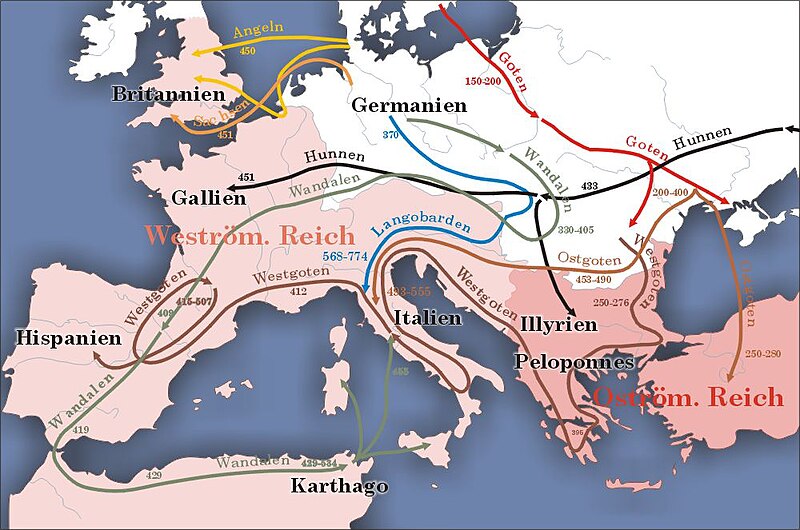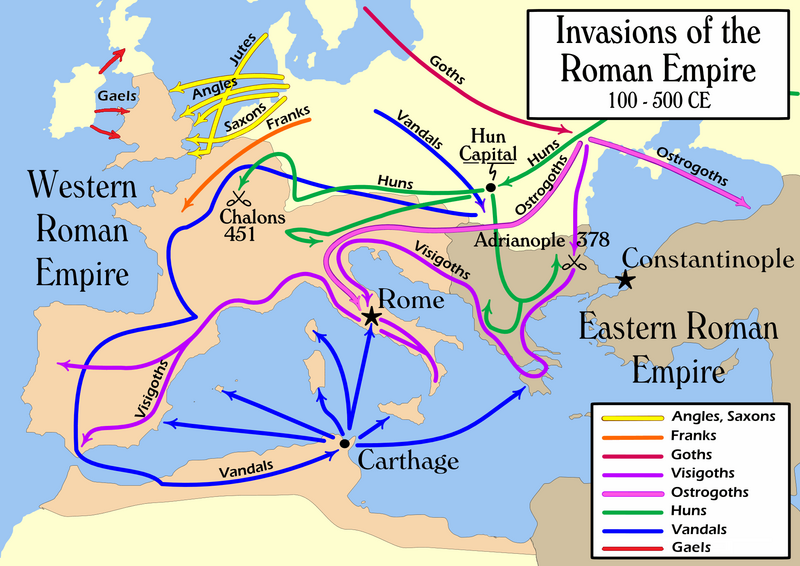waasekom
The Force is Strong With This One
K I hear you, I hear you. Is that what you want? , haven't a clue. You see, I don't mean to be implying anything about superiority of any kind. You have have every right to have an opinion, as do I. I am simply stating my 'opinion'. This isn't because of any historical document I read, or research I've done. This is from experience, in scale of the life's long breath of livingness. This essentially means the memory from a generational lineage, reaching far back. Livingness in this context is whatever you understand it to be. Which it already is, so there is no point to 'discuss' or explain anything in that regard. The point about language was in regard to contrasts. In world view. The world view contrast is from oral to written 'histories', languages, ways of being, which in effect is the different sounds of people. We cannot see consciousness, but we know we are living. We only know the effect of the movement; which in this context is sound in the form of language. Communication is not about whether or not you can project ideas, or demonstrate a behaviour pattern (writing). Communication is about the language of life itself, pattern recognition, intuition, beingness, caring for each other, sustaining the whole. In true communication the I eventually becomes the We. In this way, 'the wave' in my 'opnion' is that change, in whatever form it manifests.
Taking a step back:
I know what etymology is. It is obvious, because I know English is from a borrowed source.
An example is the word 'explain'. Explain was used an expression for an unraveling of something:
QUOTE (http://www.etymonline.com/index.php?term=explain)
"early 15c., from L. explanare "to make level, smooth out;" also "to explain, make clear" (see explanation). Originally explane, spelling altered by influence of plain. In 17c., occasionally used more literally, of the unfolding of material things: Evelyn has buds that "explain into leaves" ["Sylva, or, A discourse of forest-trees, and the propagation of timber in His Majesties dominions," 1664]."
It is now understood differently when they were first used. It is used to 'make comprehensible', but originally was in an active state, like making a tool, or table, or chair, or window or building there is all differences all over the place.
Qoute: http://www.wordnik.com/words/explain
"–verb-transitive
To make plain or comprehensible.
To define; expound: We explained our plan to the committee.
To offer reasons for or a cause of; justify: explain an error.
To offer reasons for the actions, beliefs, or remarks of (oneself).
–verb-intransitive
To make something plain or comprehensible: Let me explain.
–phrasal-verb
explain away To dismiss or get rid of by or as if by explaining.
explain away To minimize by explanation."
There is one mentality in particular that seeks to be sovreign over many other mentalites that is all, doesn't matter the race. I go to thia level, for this is my clan, the turtle. I know of my inherent gifts, which is the gift of knowing wisdom, most likely beyond the range of experience. This might mean nothing, but just like social norms, there is a respected value and quality within the gift of individuality within my 'world view', and others sharing the a similar understanding, as it really exists as. Which is like world view, but in another form. Although it may not occur to you that there is wisdom in this world that does not rely on paper. There are some people that although they knew not what they do, genocidally through spiritual warfare have caused many turmoils. I have but one responsibility, to understand. I know who I am, and why I am, where I am, How I came here, and these are simple things when you understand. When a man looks at the world without judgement, he will see. He Will Cry, and He Will Cry again for he learns of understanding.
On this site, they talk about people without feeling. Pyschopaths, I'm sure that's the word. I know I am not this really. Although, and I am being honest, I feel Insane. I am not perfect, but my conjectue is that we all exhibit those traits, because of what is occuring around us. Don't you see, we are the Earth!!!! We are the only ones on the planet who don't know who we are. We are the only one causing what it happening and what is to happen. Why are we looking out into the big vastness of Space, or lack there of, when we cannot even do what is needed so, so obviously.
This isn't about you individually per se, whoever you are. I appreciate you, whoever you are.
Things change because there is an order that is even pre-ancient, not the order in the supposed 'people in the know' describe.
I appreciate this site because although I can see obvious pathology, there is a reminent of what once was and still is through You the livingness. And this is coming from the memory of the first world, not the world that was created in spite of it. My blood remembers beyond what I've experienced. I cannot prove in linearity, in anyway other than expressing what is inside. You, inside yourself are 'right' regardless, but it is you outside that can manipulate you on the inside, because it is only a projection. The information that we as human beings have been getting from the external source is tainted in contrast with the original identity that resides in everyone. Somewhere. Could be everywhere. How would you know unless you know who you are and why you are.
I do not mean anything linearity, just to be out of firing range. If you can accept that.
This isn't about me, This is about ME, and who Me really is, and who WE are. I dont know what originally I was speaking about, but English language is where I put this because this is was only place to put such a contrast in world view. Understanding that the what becomes the why in meaning.
Who knows, really. There is always an unknown. We are an insane race. Truly. We are so afraid of this unknown factor, that we cannot accept it as a part of ourselves. That part that is our 'higher selves', 'spirit', 'life-force that permeates life.' and I Love You, whoever you are. I dont mean I am giving love to you. that is not love, I just Love
you.
Please do not take my words in anyway way that is unsuitable in any way unsuitable to You, who ever You are.
Taking a step back:
I know what etymology is. It is obvious, because I know English is from a borrowed source.
An example is the word 'explain'. Explain was used an expression for an unraveling of something:
QUOTE (http://www.etymonline.com/index.php?term=explain)
"early 15c., from L. explanare "to make level, smooth out;" also "to explain, make clear" (see explanation). Originally explane, spelling altered by influence of plain. In 17c., occasionally used more literally, of the unfolding of material things: Evelyn has buds that "explain into leaves" ["Sylva, or, A discourse of forest-trees, and the propagation of timber in His Majesties dominions," 1664]."
It is now understood differently when they were first used. It is used to 'make comprehensible', but originally was in an active state, like making a tool, or table, or chair, or window or building there is all differences all over the place.
Qoute: http://www.wordnik.com/words/explain
"–verb-transitive
To make plain or comprehensible.
To define; expound: We explained our plan to the committee.
To offer reasons for or a cause of; justify: explain an error.
To offer reasons for the actions, beliefs, or remarks of (oneself).
–verb-intransitive
To make something plain or comprehensible: Let me explain.
–phrasal-verb
explain away To dismiss or get rid of by or as if by explaining.
explain away To minimize by explanation."
There is one mentality in particular that seeks to be sovreign over many other mentalites that is all, doesn't matter the race. I go to thia level, for this is my clan, the turtle. I know of my inherent gifts, which is the gift of knowing wisdom, most likely beyond the range of experience. This might mean nothing, but just like social norms, there is a respected value and quality within the gift of individuality within my 'world view', and others sharing the a similar understanding, as it really exists as. Which is like world view, but in another form. Although it may not occur to you that there is wisdom in this world that does not rely on paper. There are some people that although they knew not what they do, genocidally through spiritual warfare have caused many turmoils. I have but one responsibility, to understand. I know who I am, and why I am, where I am, How I came here, and these are simple things when you understand. When a man looks at the world without judgement, he will see. He Will Cry, and He Will Cry again for he learns of understanding.
On this site, they talk about people without feeling. Pyschopaths, I'm sure that's the word. I know I am not this really. Although, and I am being honest, I feel Insane. I am not perfect, but my conjectue is that we all exhibit those traits, because of what is occuring around us. Don't you see, we are the Earth!!!! We are the only ones on the planet who don't know who we are. We are the only one causing what it happening and what is to happen. Why are we looking out into the big vastness of Space, or lack there of, when we cannot even do what is needed so, so obviously.
This isn't about you individually per se, whoever you are. I appreciate you, whoever you are.
Things change because there is an order that is even pre-ancient, not the order in the supposed 'people in the know' describe.
I appreciate this site because although I can see obvious pathology, there is a reminent of what once was and still is through You the livingness. And this is coming from the memory of the first world, not the world that was created in spite of it. My blood remembers beyond what I've experienced. I cannot prove in linearity, in anyway other than expressing what is inside. You, inside yourself are 'right' regardless, but it is you outside that can manipulate you on the inside, because it is only a projection. The information that we as human beings have been getting from the external source is tainted in contrast with the original identity that resides in everyone. Somewhere. Could be everywhere. How would you know unless you know who you are and why you are.
I do not mean anything linearity, just to be out of firing range. If you can accept that.
This isn't about me, This is about ME, and who Me really is, and who WE are. I dont know what originally I was speaking about, but English language is where I put this because this is was only place to put such a contrast in world view. Understanding that the what becomes the why in meaning.
Who knows, really. There is always an unknown. We are an insane race. Truly. We are so afraid of this unknown factor, that we cannot accept it as a part of ourselves. That part that is our 'higher selves', 'spirit', 'life-force that permeates life.' and I Love You, whoever you are. I dont mean I am giving love to you. that is not love, I just Love
you.
Please do not take my words in anyway way that is unsuitable in any way unsuitable to You, who ever You are.





